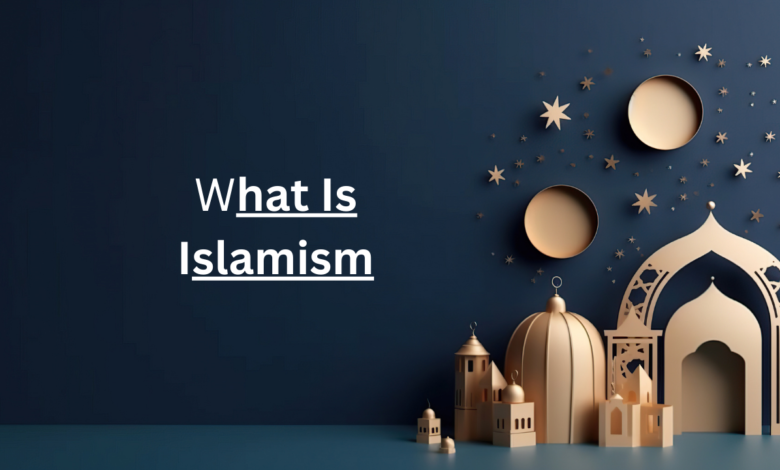
What Is Islamism
Islamism is a political and religious ideology that seeks to establish Islamic principles as the foundation for governance and societal organization. It advocates for the implementation of Sharia law and the integration of Islamic values into all aspects of public life.

Introduction-What Is Islamism
Islamism is a term that frequently appears in contemporary discussions on religion, politics, and global affairs. However, its meaning is often misconstrued, leading to confusion and misinterpretation. To gain a comprehensive understanding of Islamism, we must delve into its origins, principles, variations, and the complex interplay between religion and politics.
Defining Islamism
Islamism, at its core, is a political and religious ideology that seeks to establish Islamic principles as the foundation for governance and societal organization. It is important to differentiate between Islam as a religion, which encompasses a diverse range of beliefs and practices, and Islamism, which is a specific political ideology.
Also check.

Key Elements of Islamism
- Islamic Governance: Islamists advocate for the implementation of Sharia law as the legal framework governing society. They argue that Islamic principles should guide legislation, governance, and societal norms.
- Political Activism: Islamism is not solely a religious belief but a political movement. Islamists often engage in political activities to gain power and influence within a state’s institutions.
- Rejection of Secularism: Islamism rejects secularism and the separation of religion from the state. It asserts that Islam should play a central role in all aspects of public life.
Historical Background
The roots of Islamism can be traced back to the late 19th and early 20th centuries, when Muslim-majority societies grappled with the decline of the Ottoman Empire, colonialism, and modernization. Figures like Sayyid Abul Ala Maududi (founder of Jamaat-e-Islami in Pakistan) and Hassan al-Banna (founder of the Muslim Brotherhood in Egypt) played pivotal roles in shaping the ideology.
Variations within Islamism
It is essential to recognize that Islamism is not a monolithic ideology; it encompasses a wide spectrum of beliefs and approaches. Two prominent variations are:
- Moderate Islamism: Some Islamists advocate for a more moderate and inclusive interpretation of Islam, aiming to achieve their goals through peaceful and democratic means. They argue for the compatibility of Islam with democracy and human rights.
- Radical Islamism: Radical Islamists, on the other hand, advocate for the use of violence and extremism to achieve their goals. Groups like Al-Qaeda and ISIS fall into this category, seeking to establish Islamic states through violent means.
Islamism and Contemporary Politics
Islamism has had a significant impact on the political landscape in several Muslim-majority countries. Parties inspired by Islamist principles have gained power through elections in countries such as Turkey and Tunisia. However, these movements have also faced opposition and restrictions in countries like Egypt and Saudi Arabia.
Challenges and Controversies
- Human Rights Concerns: Critics argue that some Islamist governments restrict individual freedoms, particularly for women and religious minorities. The strict interpretation of Sharia law can lead to human rights violations.
- Secularism vs. Islamism: The tension between secularism and Islamism is a recurring source of political conflict in many countries. Striking a balance between religious principles and democratic governance remains a complex challenge.
Conclusion
Islamism is a multifaceted ideology with a range of interpretations and applications. While some Islamists advocate for peaceful and democratic means to promote their vision of Islam’s role in society, others resort to violence and extremism. To understand Islamism fully, it is essential to recognize its historical roots, variations, and its impact on contemporary politics and societies. Engaging in informed and respectful dialogue is crucial for addressing the complexities of this ideology and its implications for the modern world.
FAQs-What Is Islamism

What is Islamism?
Islamism is a political and religious ideology that seeks to establish Islamic principles as the foundation for governance and societal organization. It advocates for the implementation of Sharia law and the integration of Islamic values into all aspects of public life.
How is Islamism different from Islam?
Islam is a religion with diverse beliefs and practices, while Islamism is a specific political ideology. Islamism focuses on the use of Islamic principles in politics and governance.
What are the key elements of Islamism?
The key elements of Islamism include the advocacy for Islamic governance, political activism, and the rejection of secularism. Islamists seek to implement Sharia law in society and argue against the separation of religion from the state.
Are all Islamists radical or violent?
No, not all Islamists are radical or violent. There are moderate Islamists who advocate for peaceful and democratic means to achieve their goals. Radical Islamism represents a subset that endorses violence and extremism.
Who are some notable figures associated with Islamism?
Prominent figures in the development of Islamist thought include Sayyid Abul Ala Maududi, the founder of Jamaat-e-Islami in Pakistan, and Hassan al-Banna, the founder of the Muslim Brotherhood in Egypt.
How has Islamism impacted politics in Muslim-majority countries?
Islamism has had a significant impact on the political landscape of several Muslim-majority countries. Islamist parties have gained power through elections in some countries, while others have faced restrictions and opposition.
What are some concerns associated with Islamism?
Human rights concerns are often raised regarding certain Islamist governments, particularly regarding the restriction of individual freedoms, the treatment of women, and the rights of religious minorities. Striking a balance between Islamic principles and human rights can be challenging
Is there a single, unified form of Islamism?
No, Islamism is not a monolithic ideology. It encompasses a wide spectrum of beliefs and approaches, ranging from moderate Islamism that seeks peaceful coexistence with democratic values to radical Islamism that endorses violence and extremism.
How can we engage in informed dialogue about Islamism?
Engaging in informed dialogue about Islamism requires understanding its historical roots, variations, and contemporary implications. It also involves recognizing the diversity of opinions within the ideology and approaching discussions with respect and open-mindedness.
What is the future of Islamism in global politics?
The future of Islamism remains uncertain and varies from one region to another. It will continue to evolve, influenced by factors such as geopolitics, social change, and the actions of Islamist movements themselves. Vigilance, dialogue, and diplomacy will be essential in addressing its complex challenges.




